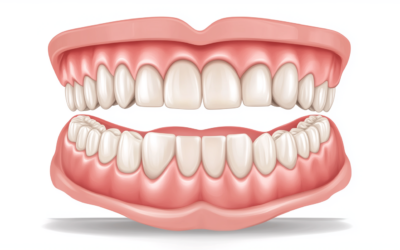How to avoid tooth discoloration from food and drinks

Tooth discoloration is a common concern for many people, and it can be caused by a variety of factors, including the consumption of certain foods and drinks. Discolored teeth can affect one’s confidence and overall appearance, leading to a desire to find effective ways to prevent and manage this issue. Fortunately, there are several strategies and habits that can help minimize the risk of tooth discoloration caused by dietary choices.
One of the primary steps in avoiding tooth discoloration is to be mindful of the types of foods and beverages you consume. Certain foods and drinks are known to be more likely to stain teeth due to their high pigment content. For instance, coffee, tea, red wine, and dark-colored sodas contain compounds that can easily adhere to tooth enamel, leading to stains over time. To reduce the impact of these substances, consider moderating your intake of such items. If you do consume them, try to do so in moderation and consider using a straw to minimize direct contact with your teeth.
Additionally, incorporating a few preventive habits into your daily routine can be highly effective. Drinking plenty of water throughout the day helps to wash away food particles and reduce the potential for staining. Rinsing your mouth with water or brushing your teeth after consuming staining foods and beverages can also help remove pigments before they have a chance to adhere to your enamel. If brushing is not immediately possible, chewing sugar-free gum can stimulate saliva production, which helps neutralize acids and clean your teeth.
Maintaining a good oral hygiene routine is crucial for preventing tooth discoloration. Brushing your teeth at least twice a day with a fluoride toothpaste helps remove surface stains and prevent the buildup of plaque, which can contribute to discoloration. Using a toothpaste specifically designed for stain removal can provide additional benefits. Regular flossing also helps remove food particles and plaque from between your teeth, reducing the risk of discoloration and promoting overall dental health.
In addition to brushing and flossing, consider incorporating periodic professional dental cleanings into your oral care routine. Dentists and dental hygienists have access to specialized tools and techniques that can remove surface stains and tartar buildup more effectively than at-home brushing. Professional cleanings can help maintain a whiter smile and ensure that any potential discoloration is addressed promptly.
Dietary choices play a significant role in tooth discoloration, and making some adjustments can be beneficial. Eating crunchy fruits and vegetables like apples, carrots, and celery can help naturally clean your teeth as you chew. These foods act as a natural toothbrush, helping to scrub away surface stains and promote healthy saliva flow. Foods rich in calcium, such as dairy products, can also strengthen tooth enamel and reduce the likelihood of discoloration.
It’s also important to be aware of the acidity of certain foods and beverages. Acidic substances can erode tooth enamel, making teeth more susceptible to staining. Beverages like citrus juices and sports drinks, as well as highly acidic foods, should be consumed in moderation. After consuming acidic items, it’s advisable to wait at least 30 minutes before brushing your teeth to avoid damaging softened enamel.
For those who are particularly concerned about tooth discoloration, considering professional whitening treatments can be an option. There are various methods available, including in-office whitening procedures and take-home whitening kits. Professional treatments are typically more effective at addressing deep stains and providing a noticeable improvement in tooth color. However, it is essential to consult with a dentist before undergoing any whitening procedure to ensure it is appropriate for your dental health.
In summary, preventing tooth discoloration from food and drinks involves a combination of dietary awareness, good oral hygiene practices, and regular professional dental care. By moderating the consumption of staining substances, maintaining a consistent oral care routine, and making mindful dietary choices, you can significantly reduce the risk of tooth discoloration and enjoy a brighter, healthier smile.


